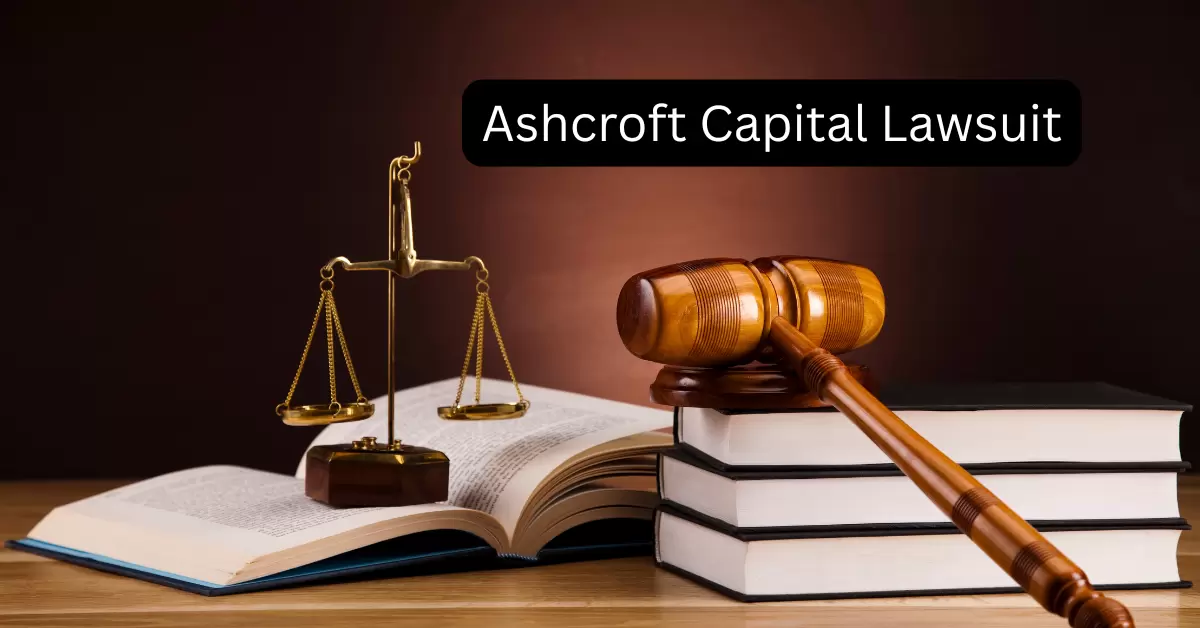Ashcroft Capital Lawsuit: Everything Investors Should Know

Table of Contents
- Introduction to ashcroft capital lawsuit
- Background of the Ashcroft Capital Lawsuit
- Allegations Against ashcroft capital lawsuit
- ashcroft capital lawsuit Response and Defense
- Impact on Investors and the Market
- Legal Lessons from the Lawsuit
- Protecting Yourself as a Real Estate Investor
- The Future of ashcroft capital lawsuit Post-Lawsuit
- Frequently Asked Questions (FAQ)
Introduction to ashcroft capital lawsuit
ashcroft capital lawsuit is a prominent player in the real estate investment sector, primarily focusing on multifamily residential properties across various U.S. markets. Founded by seasoned industry professionals, the firm has built its reputation on identifying underperforming apartment complexes, acquiring them at a discount, and then adding value through renovations and improved management.
The company’s investment strategy is designed to generate steady cash flow for investors by enhancing property operations and capital appreciation over time. Their projects typically attract investors looking for passive income streams, with Ashcroft acting as the active manager responsible for day-to-day operations and strategic decisions.
Despite a strong reputation for growth and an ambitious acquisition pipeline, ashcroft capital lawsuit is not immune to challenges. Like many firms operating in complex real estate markets, the company has faced legal scrutiny from investors alleging mismanagement and lack of transparency — issues at the heart of the current lawsuit.
Background of the Ashcroft Capital Lawsuit

The lawsuit involving ashcroft capital lawsuit first came to public attention when a group of investors filed claims alleging that the company misrepresented key aspects of its investment offerings. These complaints were primarily focused on transparency, reporting accuracy, and how funds were allocated within specific multifamily projects.
At its core, the dispute revolves around whether ashcroft capital lawsuit fulfilled its fiduciary duty to investors by providing honest and timely information about the performance and risks of the properties they managed. Some investors argue that the firm’s communications painted an overly optimistic picture that did not match actual outcomes.
This legal challenge highlights a broader issue in real estate investing, where private firms operate with less regulatory oversight compared to public companies. Investors often rely heavily on the sponsor’s integrity and track record, making transparency and trust critical components in these relationships.
Allegations Against ashcroft capital lawsuit
The allegations in the lawsuit include several serious claims: misleading investors through marketing materials, failure to disclose operational difficulties, improper handling of renovation budgets, and breaches of fiduciary duty.
One specific accusation involves inflated property valuations used to attract more investment capital. Investors claim that these valuations were not realistic, leading them to commit more money based on false assumptions about potential returns.
Another major point of contention is the delayed renovations and cost overruns on certain properties. These operational setbacks allegedly reduced expected cash flows and distributions but were not fully communicated to investors, undermining their ability to make informed decisions.
The lawsuit also addresses issues of governance, alleging that ashcroft capital lawsuit prioritized management fees and company profits over investors’ interests — a serious charge that questions the company’s commitment to its fiduciary responsibilities.
ashcroft capital lawsuit Response and Defense
In response to the lawsuit, ashcroft capital lawsuit has firmly denied all allegations, stating that they have always operated transparently and within the legal framework. The company emphasizes the inherent risks in real estate investments, especially in value-added multifamily projects, where market conditions and unforeseen factors can influence results.
ashcroft capital lawsuit leadership has highlighted its track record of successful projects and argued that investor dissatisfaction is more related to market dynamics than any mismanagement. They assert that they communicated risks and progress regularly, with documentation to support their claims.
Moreover, the firm has expressed willingness to pursue alternative dispute resolution methods, including mediation or arbitration, to avoid lengthy court proceedings. This stance reflects a desire to maintain investor confidence while managing reputational risks.
Impact on Investors and the Market
For investors currently involved with ashcroft capital lawsuit, the lawsuit introduces uncertainty and potential risk to their returns. Legal disputes can delay distributions, cause reputational damage, and complicate exit strategies for investors.
More broadly, this case underscores the importance of transparency and accountability in private real estate investments. It serves as a reminder that investors must conduct rigorous due diligence and maintain realistic expectations.
The lawsuit also affects the broader multifamily real estate market by increasing scrutiny on how firms manage investor relations and disclosures. As private real estate grows in popularity, such legal battles could lead to tighter industry standards and possibly regulatory changes.
Legal Lessons from the Lawsuit
The ashcroft capital lawsuit lawsuit highlights several key legal lessons for both investors and real estate firms:
- Fiduciary Duty is Paramount – Companies managing investor funds must prioritize the interests of their investors, ensuring honest communication and prudent decision-making.
- Transparency Cannot Be Overlooked – Providing timely and accurate updates about investment performance and risks is crucial to maintaining trust and avoiding legal disputes.
- Clear Contractual Terms and Dispute Resolution – Investment agreements should include detailed terms on reporting obligations and dispute resolution mechanisms, helping avoid costly litigation.
- Due Diligence is Essential – Investors need to understand all risks, fees, and operational details before committing capital.
This lawsuit serves as a case study on the pitfalls of inadequate communication and governance in real estate investments.
Protecting Yourself as a Real Estate Investor
Real estate investing can be rewarding but comes with risks. To safeguard your investments, consider the following:
- Thoroughly Review Documentation: Study offering memorandums, subscription agreements, and financial projections before investing.
- Ask Detailed Questions: Seek clarification on fees, risk factors, management experience, and how funds will be used.
- Diversify Investments: Don’t put all your capital into one project or sponsor; diversification helps mitigate risk.
- Work with Professionals: Engage attorneys, financial advisors, and tax experts knowledgeable in private real estate.
- Demand Transparency: Insist on regular, clear reports and updates on investment performance.
Taking these precautions can help investors avoid unpleasant surprises like those alleged in the Ashcroft Capital lawsuit.
The Future of Ashcroft Capital Post-Lawsuit
How ashcroft capital lawsuit navigates the legal challenges will significantly impact its reputation and ability to raise future capital. The outcome of this lawsuit may lead to enhanced internal controls, better communication strategies, and stronger compliance frameworks.
If Ashcroft successfully addresses investor concerns and demonstrates a commitment to transparency, it could restore confidence and continue its growth trajectory. However, prolonged legal battles could strain resources and deter potential investors.
The firm’s handling of this situation will also influence broader industry standards and investor expectations for private real estate sponsors.
Frequently Asked Questions (FAQ)
Q1: What is the Ashcroft Capital lawsuit about?
The lawsuit involves investor claims that ashcroft capital lawsuit misled them about investment risks, failed to disclose key information, and breached fiduciary duties in managing multifamily real estate projects.
Q2: Has ashcroft capital lawsuit admitted wrongdoing?
No, the company denies all allegations and maintains it operates transparently and ethically.
Q3: How will this lawsuit affect investors?
Current investors may face uncertainties regarding distributions and investment performance. It’s advised they stay informed and consider legal advice if concerned.
Q4: Are lawsuits common in real estate investing?
While not everyday occurrences, legal disputes between investors and real estate firms happen occasionally, especially when outcomes don’t meet expectations.
Q5: How can I protect myself when investing in private real estate?
Conduct thorough due diligence, ask detailed questions, diversify your investments, consult professionals, and insist on transparency.
If you’re considering investing with ashcroft capital lawsuit or similar firms, this lawsuit highlights the need for caution and vigilance. By understanding the risks and demanding accountability, investors can make more informed decisions and protect their financial interests.





